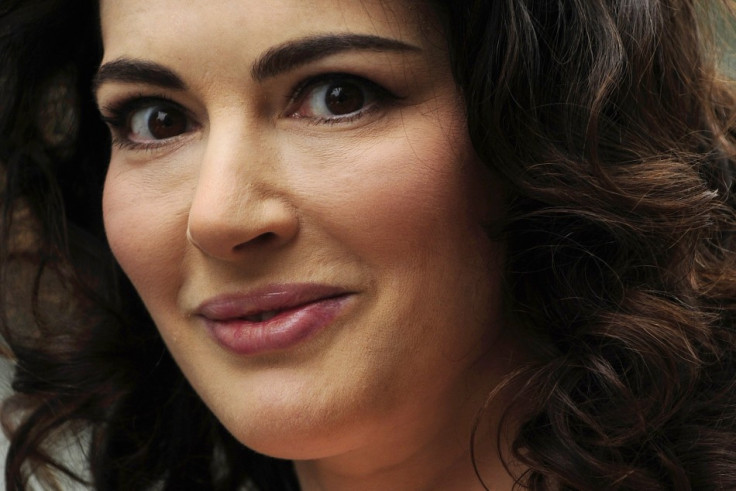Nigella Lawson Choking Attack Should not be Played Down

The media circus surrounding Charles Saatchi apparently choking his wife Nigella Lawson outside a London restaurant may smack of tabloid frenzy, but the furore over the published pictures has forced the public to address what exactly counts as domestic abuse.
Apparently, Saatchi thought little of it initially, after telling the London Evening Standard that it was a "playful tiff" before adding that the pictures were horrific "but give a far more drastic and violent impression of what actually took place" than what actually happened.
"Nigella's tears were because we both hate arguing, not because she had been hurt," he explained.
He was cautioned by police over the incident after voluntarily attending a central London police station. In the same Evening Standard column, Saatchi also said that he only accepted the caution because he didn't want it "hanging over them" for months. Lawson did not file a complaint.
Everything else is pure speculation.
But of course it is. It is difficult to ever know what happens behind closed doors and what a relationship is truly like between partners.
However, while the paparazzi are usually unwelcome pests who spend most of their time trying to snap wardrobe malfunctions and celebrities looking the worse for wear, the attention around the Saatchi and Lawson situation may end up helping those who feel emotionally affected by the pictures - and to address what is just not acceptable.
Lawson mentioned in 2007 that arguing with Saatchi was a run-of-the-mill event. "I'll go quiet when he explodes, and then I am a nest of horrible festeringness," she said.
Various pictures over the years have shown the celebrity chef after some very public rows, leaving her crying in the streets.
Taboo
The thing is, there is still a taboo about what counts as domestic abuse in our society.
We may need to see bruises and broken bones or hear a confession to convince ourselves that our suspicions, from all those years where your friend or family member are "not being themselves", are correct.
Otherwise we just count the relationship as being "feisty" or "fiery".
While Lawson has not said she was being domestically abused and Saatchi has not been charged with anything, I see a lot of what she went through publicly in a situation I experienced in front of strangers.
I never endured a broken bone but what I did encounter was years of mental anguish and borderline assault.
I remember the countless times where I would be berated in public and the humiliation of crying in front of random people at restaurants, clubs, parks and even at friends' parties. Every morning I would wake up exhausted.
"It's just how we are. No one understands our dynamic," would be the classic inner voice.
"I am a successful and smart young woman, I am not stupid."
The sheer public embarrassment would wash away until the next time and my pride at not wanting to admit that it was not acceptable would abate thoughts of splitting up for a while.
But after months, it escalated and when we argued he would grab my neck, my shoulder, my arm or shake me like a rag doll - to make his point. He would put his hand over my mouth when he was fed up with hearing me talk, but always stopped short of hitting me in the face.
It happened several times in public and I saw the glancing looks but no words to help - which only made me feel ever more isolated and embarrassed.
Waiters and other diners looked perturbed that we were disturbing them - and so was I. I didn't care about what was happening to me at that but more concerned that I was being a bother and a burden.
Therein lies the problem.
Without physical evidence, the memories for everyone else fade quickly and most people on the outskirts of your relationship think that it will get better with time.
But it doesn't.
Through support from friends and family, you can break the cycle. Charities such as Women's Aid provide advice to loved ones on how to help someone out. On the other side, talking about it does not make you a martyr or a burden. Nor does admitting that you need advice or help make you weak.
If only every person had the support of strangers, as, naturally, celebrities do, then maybe we would all be that little bit more active in helping others before it gets worse.
Sarah St Clair, not her real name, is a writer.
© Copyright IBTimes 2025. All rights reserved.





















